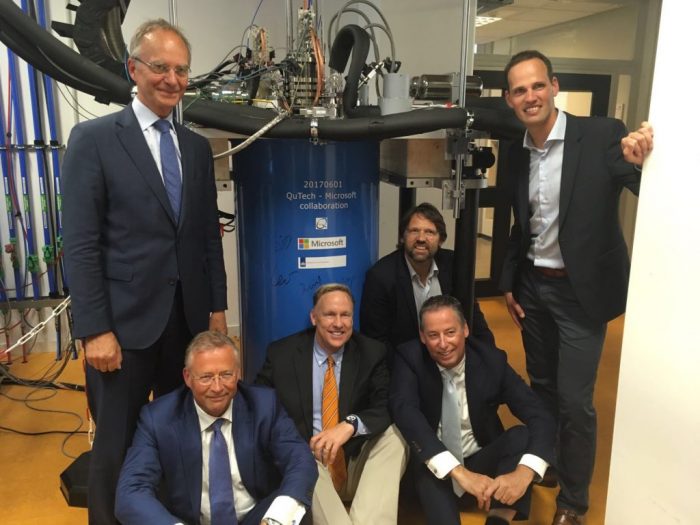Microsoft Launches Partnership with TU Delft
Microsoft will collaborate with the Dutch university to build quantum computer
Microsoft and the Delft University of Technology (TU Delft) officially began a new, long-term public-private partnership. TU Delft’s quantum institute, QuTech, will collaborate with the tech giant on the development of topological qubits. These tidbits have the potential to become the building blocks of a future quantum computer. As part of the program, Microsoft will also open its own lab on TU Delft’s campus.
“In science, we have made enormous leaps in quantum technology in recent years. We are now on the verge of actually being able to use the technology. To achieve this, it is essential that we bring together cutting-edge science from universities and advanced engineering from high-tech companies like Microsoft,” said Ronald Hanson, Director of QuTech.
Leading quantum research in the Netherlands
The topological qubit is one of QuTech’s scientific roadmaps. Scientists at TU Delft are working on developing a quantum internet, which is set to make intrinsically secure communication possible. Dutch researchers are also working with Intel and other chip manufacturers to study fault-tolerant quantum computing.
In the next decades, scientists expect to be able to build quantum computers. These computers will outpace even the largest supercomputers, solving calculations at unprecedented speeds.
Celebrating the public-private collaboration
Henk Kamp, Dutch Minister of Economic Affairs was present at the celebration of the new partnership. “Leading IT companies like Microsoft and Intel have been using QuTech to invest in Dutch quantum technology for several years now. By now, our national icon QuTech is definitely on the international map. The arrival of a Microsoft lab in Delft, provides a powerful impulse for the further development of this future technology. The new lab is an enrichment for the Delft campus where companies, investors and researchers work together on this technology, but also on other innovations related to IT and energy,” he said.
“Microsoft is now coming to our campus in Delft and will be investing heavily in staff and facilities,” added Tim van der Hagen, President of the Board of TU Delft. “This will not only give a major boost to our research, but will also help us to attract the very best scientists and students to Delft. We will be able to build further on the Netherlands’ leading role in quantum technology, with the TU Delft campus at the heart of it all.”
TU Delft founded QuTech with TNO (the Netherlands Organisation for Applied Scientific Research). And, in 2014, the Dutch government designated QuTech as a national icon.
Source: QuTech
2 June 2017